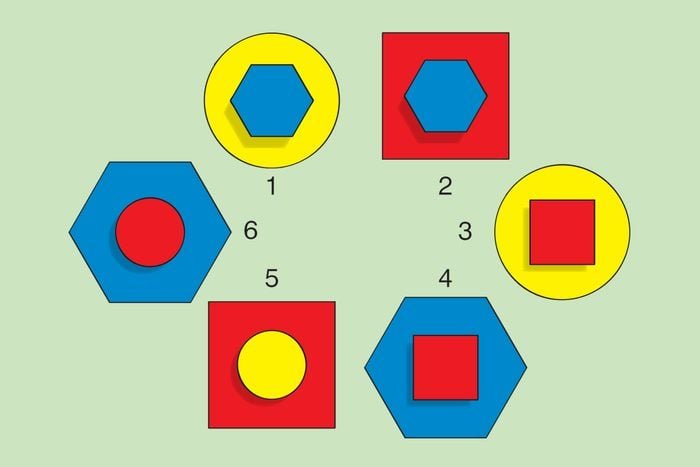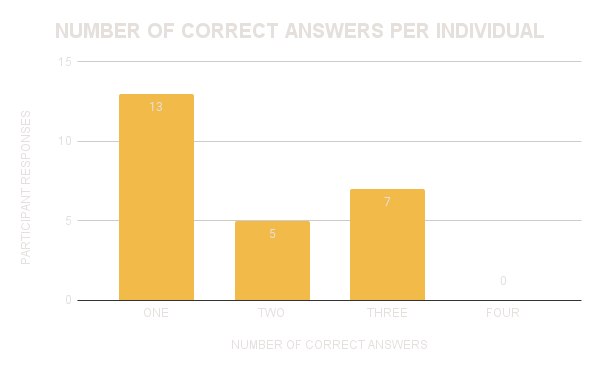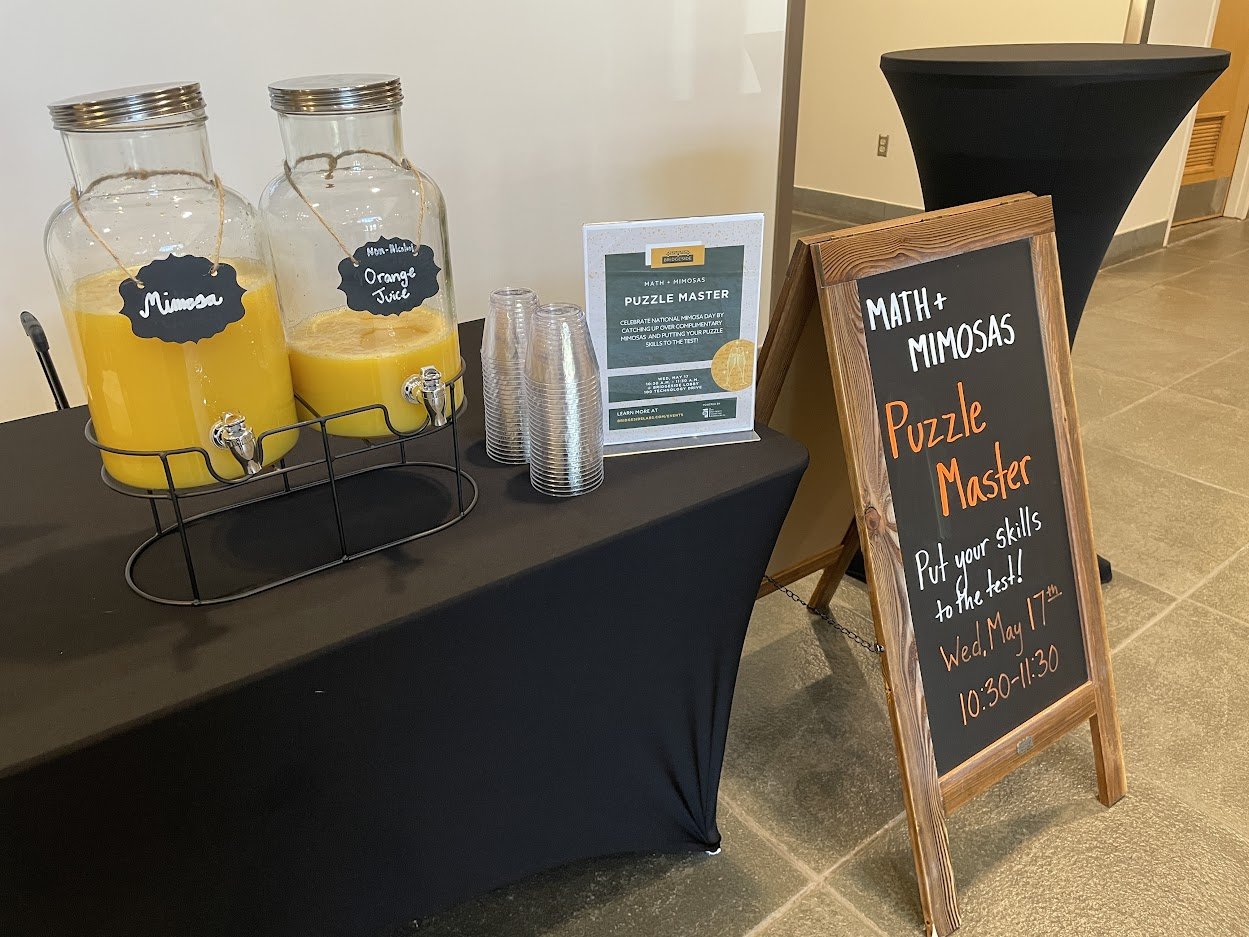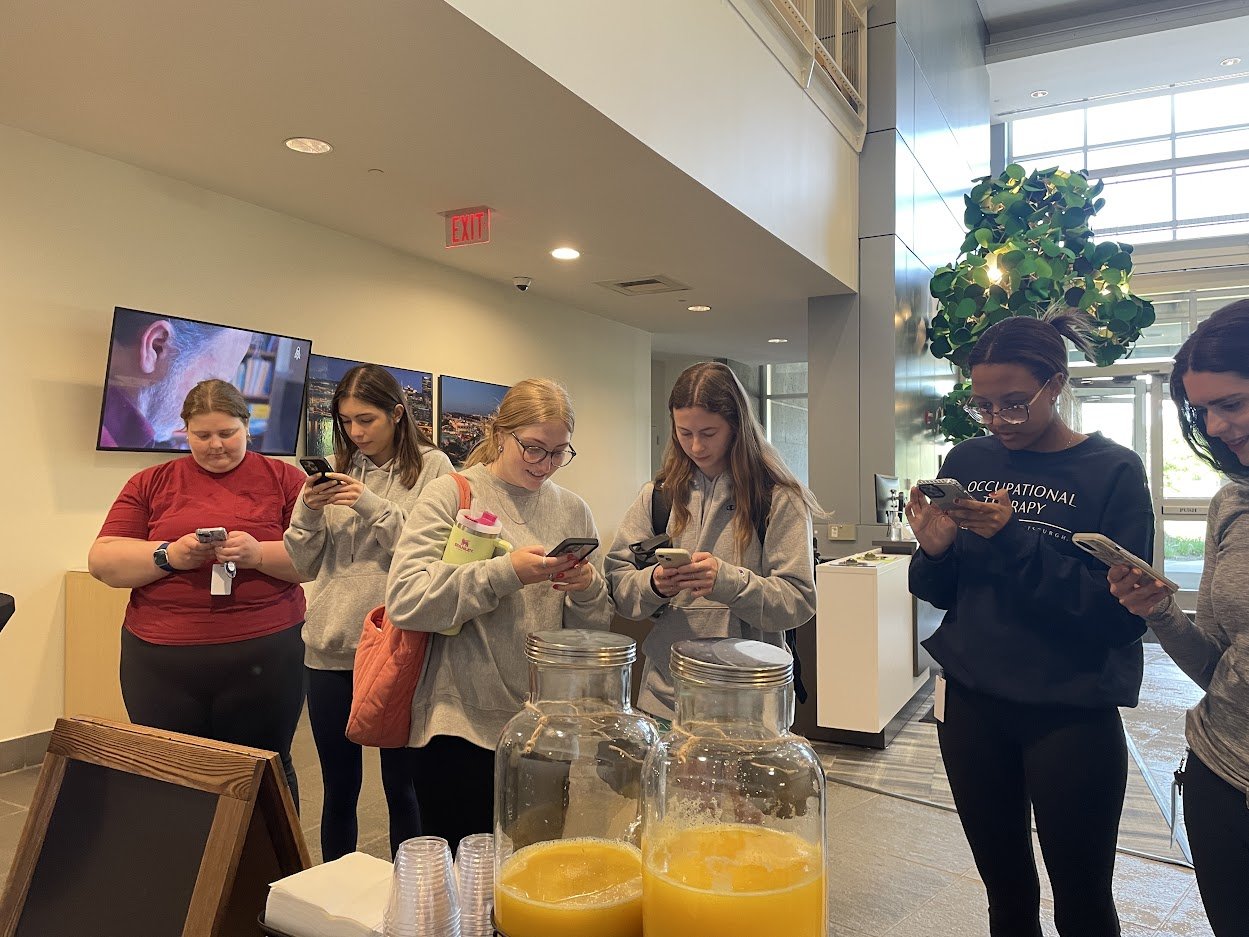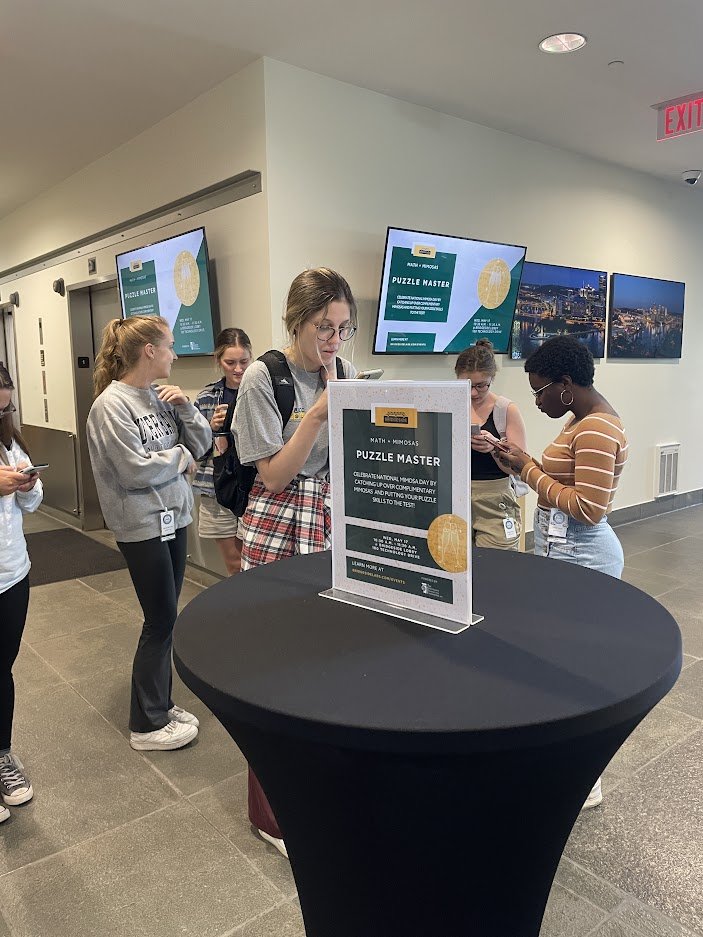Math + Mimosas Invites Participants to Master a Mix of Puzzles
Mid-May, as a mid-week mind bender and much-needed break, we hosted a Math + Mimosas: Puzzle Master event to not only put our community members’ skills to the test, but to also celebrate National Mimosa Day (albeit, a day late)!
Hosted in the lobby of Bridgeside, a table was set up with fresh mimosas (and plain orange juice) and a QR code for attendees to play the four-question quiz! And as a community focused on collaboration and one filled with innovators, leaders, researchers, scientists, professors, and students, we thought puzzles would be incredibly appealing to such intellects. In fact, better collaboration is just one of the many benefits of puzzles. According to researchers at Yale University, they found that giving people the opportunity to work together on solving puzzles allowed them to improve relationships and their abilities to cooperate to finish a task.
And while for this particular event participants worked individually, over 25 people attempted to solve the following puzzles:
1. Which figure (1-6) is not colored correctly?
1
2
3
4
5
6*
2. Which number should replace the question mark to form accurate equations, knowing that three numbers are shown per row (i.e. two of the numbers form a two-digit number)?
3
15
6*
10
3. Which numbers should replace the question marks?
654321
156234
432156
563412*
4. How many triangles can you see?
23*
15
12
18
Interestingly, not a single person got all four puzzles correct!
However, majority still prevailed overall when it came to more correct answers versus incorrect for each puzzle:
Nonetheless, we deemed everyone winners that day. And in addition to the immediate reward of receiving and ice-cold beverages, participants also experience other benefits! For instance, math puzzles can test your brain and critical thinking skills, provide constructive and educational fun, and expose you to tangible examples of math lessons you'll actually use in real life, according to Reader's Digest.
Subsequently, research has shown that puzzles:
Ameliorate short-term memory
Reinforce connections between brain cells
Boost mental speed
Enhance mood
Improve visual and spatial reasoning
Provide stress relief
Sharpen logic and reasoning
So, whether you’re a novice or a newcomer when it comes to playing puzzles, the benefits are still the same – so start strengthening that muscle sooner than later!


